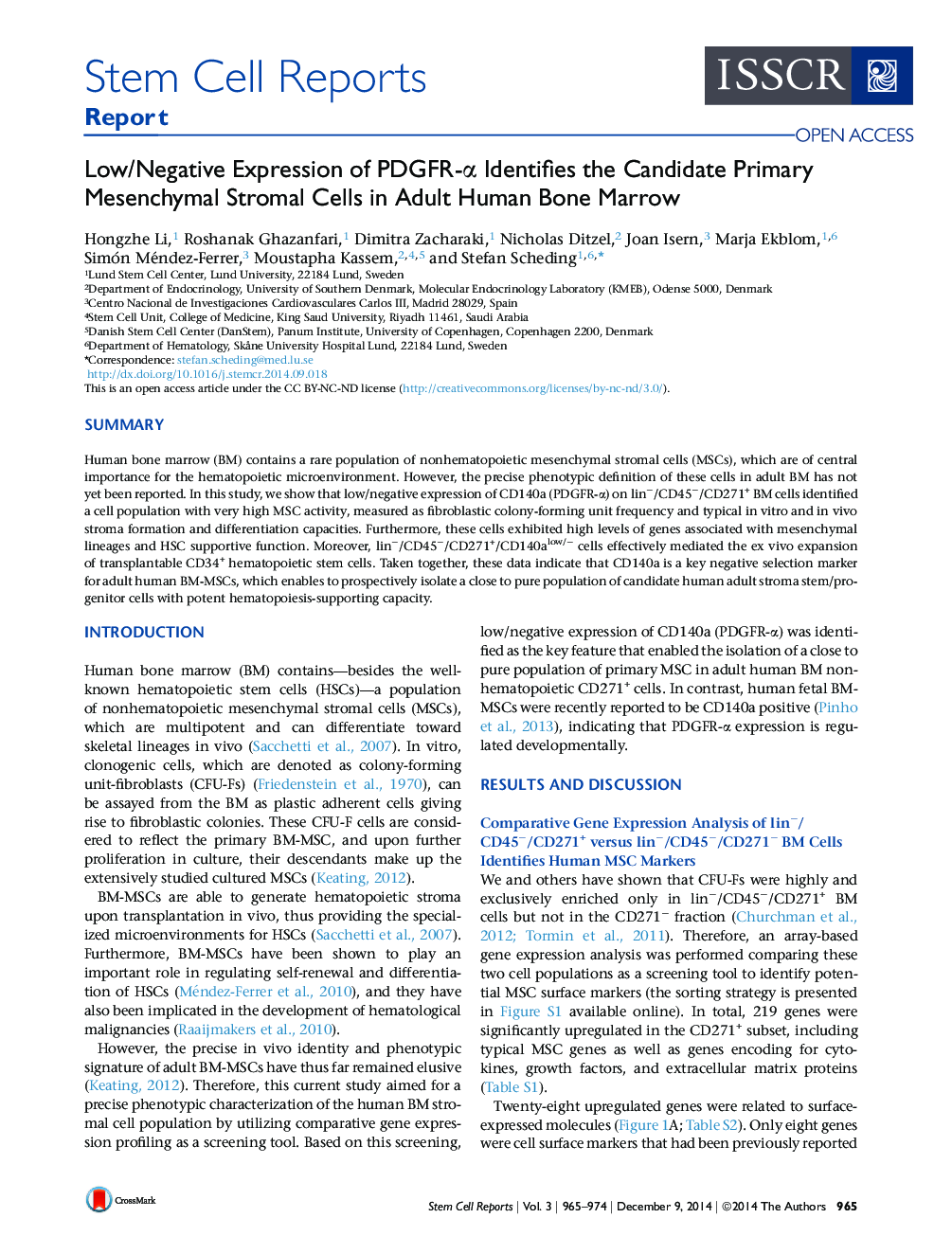| Article ID | Journal | Published Year | Pages | File Type |
|---|---|---|---|---|
| 2093677 | Stem Cell Reports | 2014 | 10 Pages |
•Comparative gene expression profiling identified MSC markers•Primary adult bone marrow MSCs are CD140 (PDGFR-α) low/negative•CD140alow/− cells have typical in vitro and in vivo MSC properties•Coculture with CD140alow/− cells effectively expanded transplantable CD34+ HSCs
SummaryHuman bone marrow (BM) contains a rare population of nonhematopoietic mesenchymal stromal cells (MSCs), which are of central importance for the hematopoietic microenvironment. However, the precise phenotypic definition of these cells in adult BM has not yet been reported. In this study, we show that low/negative expression of CD140a (PDGFR-α) on lin−/CD45−/CD271+ BM cells identified a cell population with very high MSC activity, measured as fibroblastic colony-forming unit frequency and typical in vitro and in vivo stroma formation and differentiation capacities. Furthermore, these cells exhibited high levels of genes associated with mesenchymal lineages and HSC supportive function. Moreover, lin−/CD45−/CD271+/CD140alow/− cells effectively mediated the ex vivo expansion of transplantable CD34+ hematopoietic stem cells. Taken together, these data indicate that CD140a is a key negative selection marker for adult human BM-MSCs, which enables to prospectively isolate a close to pure population of candidate human adult stroma stem/progenitor cells with potent hematopoiesis-supporting capacity.
Graphical AbstractFigure optionsDownload full-size imageDownload as PowerPoint slide
